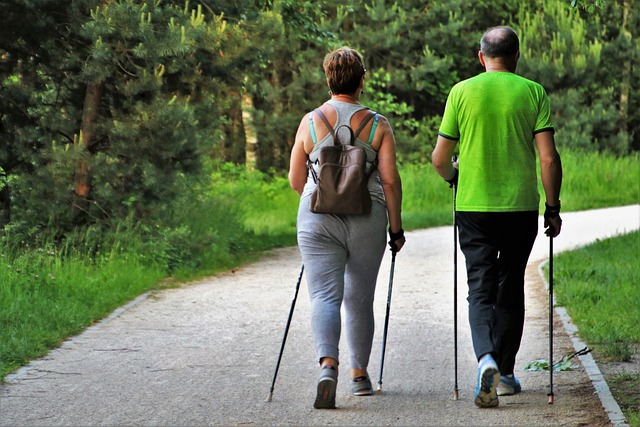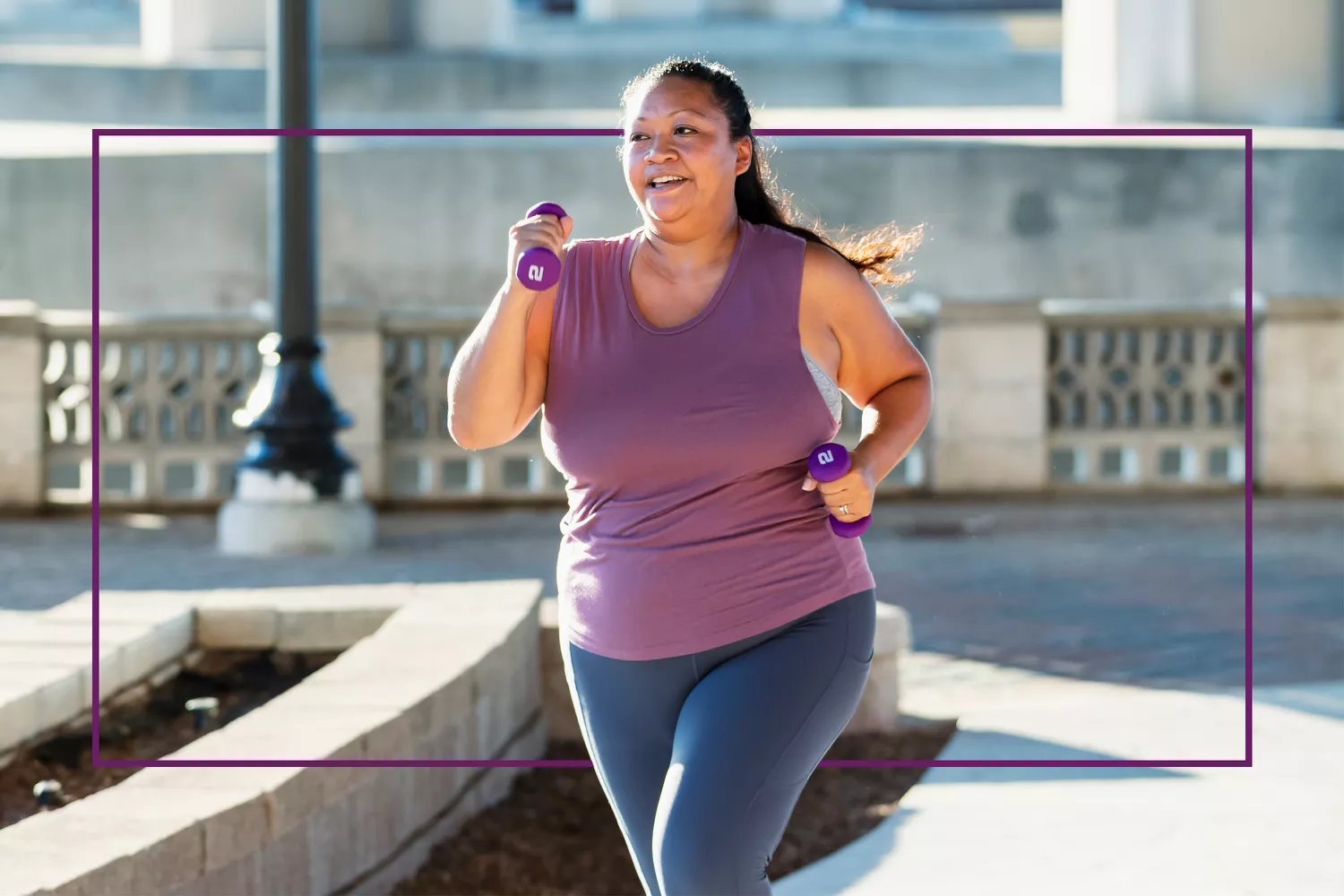Plot spoiler: consistency matters most. No worries if you’re not a morning person.
The glorification, glamorization, and virality of morning routines is nothing new. Back in the twenty-tens, the morning routine of celebrities and entrepreneurs garnered more views than a Bachelor finale. And at the start of the pandemic, we saw individuals double down on their am rituals, perhaps as a way to feel in control during unprecedented times.
Recently, the cultural fixation with morning routines has manifested in a genre of TikTok videos where creators share their morning regimes. Case and point: The #morningroutine hashtag has more than 24.6 billion (billion!) views.
One of the morning routine subgenres features fitness influencers (FitTokkers) sharing their fitness-forward morning routine, replete with pre-workout skincare routine, pre-workout greens, pre-workout snack, and then their exercise routines. Take Kay Rose, Maddi Todd, and Tay Crums, for example, who regularly post morning routines ft. exercise routines. Often, videos are overlaid with timestamps proving just how early the creator was up and about.
At their best, fitness-forward morning routine videos are equal parts (very!) entertaining and inspirational. But at their worst, they can make lunchtime and evening exercisers feel like their workout routines are suboptimal, which isn’t true. Really!
Ahead, experts explore the benefits of working out in the morning compared to working out in the evening to show that there is no such thing as a ‘better’ time to exercise. Then, they share tips for finding an exercise routine and time that works best for you.
Consistency — Not Time of Day — Is What Matters Most
“One of the downsides of social media is that you see what works best for other people, and can assume that is what is best overall,” says strength and conditioning specialist Alena Luciani, M.S., C.S.C.S., founder of Training2xl. But actually, there is no hierarchy of exercise times.
Indeed, one 2023 review on the topic published in the Journal of Sports Medicine found that there is no evidence neither for nor against a specific time of the day being more beneficial. “The best time of day to exercise is the time of day that you can consistently commit to exercising,” says Luciani. The key word here: Consistently.
“Consistency is the single most important aspect of achieving health and fitness goals and getting the amazing benefits of exercise,” says exercise physiologist and certified strength and conditioning coach Sharon Gam, Ph.D., CSCS. The fact is, there are many, many benefits to making exercise a regular part of your routine. “Regular exercise decreases the risk of dozens of chronic diseases, increases your life expectancy, boosts immune function, improves sleep, reduces pain, increases brain function (especially memory, focus, and attention), improves mood, provides energy, and increases feelings of joy, optimism, and vitality,” says Dr. Gam. It’s also been linked with better mental health outcomes, reduced stress, and stronger bones.
There Are Some Benefits To Morning Exercise
Your fave FitTokkers haven’t been lying to you: There are some advantages that are exclusive to morning exercise.
Less Life Interferences
Everyone has a different schedule and different set of obligations, acknowledges Luciani. But for many people, exercising in the morning helps decrease the risk that their ‘gym time’ will be filled by another obligation.
After all, you don’t have to worry about after-work drinks with co-workers getting scheduled in the AM. Nor is there a chance for your work meeting to run long and cut into your lunch-time or post-work exercise class when you move your body in the morning, she says.
Chain Reaction of Healthy Choices
“When you move your body in the morning, you’re starting your day doing something that benefits you and your health,” says Luciani. This can help create momentum throughout the day where you make additional choices that support your overall health and well-being, she says.
Actually, research has shown that people who exercise in the morning are less likely to over-indulge in food. In one study published in Medicine & Science in Sports & Exercise, researchers looked at the brain activity of the women who were shown pictures of food. The findings? Those who exercised in the morning had less brain reactivity to the food pics compared to those who did not, which suggests the morning exercisers were less interested in the food presented.
Boost Of Energy
“Some people report that exercising in the morning energizes them for their day,” says Luciani. And there is real science as to why this might be. She explains: In otherwise healthy individuals, cortisol levels adhere to a diurnal rhythm, which means they are highest in the morning and lowest in the evening. Cortisol gets a bad rep because it’s colloquially known as the stress hormone. But cortisol is also the hormone that helps us feel alert and awake in the morning, she explains.
“Movement is a positive form of stress on the body that can elevate cortisol, or stress, levels slightly,” says Luciani. The combination of the naturally high cortisol levels in the morning combined with the exercise-induced rush of cortisol can help make people feel extra awake, she says.
Another benefit: When you exercise in the morning, this rise supports the body’s natural cortisol levels. Meanwhile, when you exercise in the evening you create a spike at a time when the levels are decreasing. (This is one of the reasons why some people find it difficult to fall asleep after evening exercise).
But, There Are Also Benefits To Evening Exercise
Yes, there may be some benefits specific to morning exercise. But there are also benefits specific to exercising in the PM.
Properly-Fueled For Workout
When you exercise in the morning there are usually 8 to 10 hours between when you last ate a meal and when you exercised, she says. This may work A-OK for some people, but others feel under-fueled when they exercise in the morning for this reason, she says. Indeed, lightheadedness, weakness, and exhaustion are all potential side effects of doing fasted cardio (or fasted strength training).
When you hit the gym in the evening, however, there’s usually less than 4 hours between lunch and lifting, says Luciani. As a result of being better fueled going into afternoon workouts, many people feel like they have more energy to push through, go fast, and/or lift heavy, she says.
Over time, this extra energy can help an individual reach their fitness goals faster. Even if an individual only lifts one pound heavier when exercising at night versus in the morning, over time they will reach their particular fitness goals faster than if they went in the morning, she says.
Improved Performance
If you are prepping for a competitive, race, or event your goals might be best served by an evening exercise routine. That’s right, “there’s some evidence that physical performance tends to be better in the afternoon and evening,” says Dr. Gam.
In one 2023 review published in the Journal of Medicine & Science in Sports & Exercise, researchers found that there is strong evidence showing that people are able to access more power and strength when they exercise in the evening than in the morning. This data suggests that you might progress faster when you train in the evening, she says.
End Of Day Clarity
Have a hard time exiting work-brain at the end of the time? Do you typically carry the stress of work with you to the dinner table? Dr. Gam says an evening exercise routine may help. “From a mental health perspective, a nighttime exercise routine can help you transition between the stress of the day and your wind-down period at night,” she says.
How To Find What Works Best For You
There are some small benefits to working out in the morning that you won’t get in the morning, and vice versa, says Dr. Gam. “But the differences, physiologically, between exercising in the morning, afternoon, and evening are pretty small compared to the overall benefit of consistently completing your workouts.” Here are a few tips to help you find a time that works for you.
Experiment With Different Times
When you are first crafting your exercise routine, Luciani recommends trying out different times and seeing what works best with your schedule. Her suggestion: Stick with each time for at least a week so that you have a better idea of which time of day feels best to you, as well as which time of day is less likely to be hijacked by other obligations.
After an experimentation era, ask yourself the following questions to help yourself figure out what makes sense for you:
- Do I feel noticeably more motivated at one time of day compared to the other?
- Do I prefer the energy at my gym at one time of day compared to the other?
- Do I have workout buddies if I exercise at a particular time of day?
- Are work or family obligations more likely to pop up in the morning or night?
Stack Habits To Maximize Success
Once you figure out the time of day that you most enjoy exercising, consider implementing other habits that make it as easy as possible to stick with. “You want to create a lifestyle that supports your needs and your goals,” explains Luciani.
For instance, if you exercise in the morning consider the following:
- laying your outfit out the night before
- prepping your pre-workout meal before bed
- signing up for the workout classes you want to do for the week, on Sunday night
- programming your coffee machine to start brewing before your alarm
Meanwhile, if you exercise in the evening consider:
- bringing your gym bag with you to work
- scheduling exercise as a meeting in your Google calendar so your co-workers see you’re busy
- keeping protein bars in your car or bag as a pre-workout snack
Dr. Gam also recommends evening exercises do parasympathetic breathing for at least 3 to 5 minutes after every workout, to help decrease sympathetic nervous system activity and increase the rest and recovery response. “Parasympathetic breathing is basically diaphragmatic breathing with a focus on making your exhale longer than your inhale,” she says. “This is especially important after evening exercise to allow your body to shift into sleep mode more easily.”
Be Flexible When Needed
You will reap all of the health benefits of exercise, even if you exercise at a different time every day, says Dr. Gam. Experts recommend exercising at the same time of day every time you exercise because for most people it increases their likelihood of adherence, she says. But if you need to switch it up every day because your life looks different every day, that is A-Ok.
Similarly, if you usually exercise in the evening but need to switch to the morning while you have visitors or are on vacation, go ahead and do that!








Leave a Reply